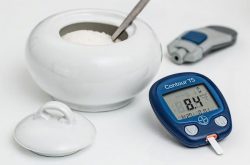
Wine, and especially red wine, has been studied extensively. Evidence suggests that moderate consumption may help people live longer, protect against certain cancers, improve mental health, and enhance heart health.Centuries ago, wine was used treat various health conditions. Medieval monasteries were convinced that their monks lived longer than the rest of the population partly because of their moderate, regular consumption of wine. In recent years, science has indicated that this could be true.
However, any health benefits only apply to moderate drinking. The United States (U.S.) Dietary Guidelines 2015 to 2020 define moderate drinking as: “Up to one drink per day for women, and up to two drinks per day for men, and only by adults of legal drinking age.”
Some people should not drink at all. It is best to discuss any planned increase in consumption with a doctor.
Read More: How to Store Wine for Short & Long Periods
Red Wine Healthy Ingredient
Red wine is loaded with antioxidants, particularly flavonoids like quercetin and resveratrol. These antioxidants boost many of the body’s processes but are particularly revered for improving heart health. Bioflavonoids are a large family of polyphenolic compounds that carry out key functions in plants, such as fighting environmental stresses and modulating cell growth.
One of the best-known flavonoids that’s present in red wine is quercetin.
Quercetin is one of the most abundant antioxidants in the human diet, and it plays an important role in fighting free radical damage, the effects of aging and inflammation. Research shows that quercetin can help to manage a number of inflammatory health conditions, including:
- heart disease
- infections
- chronic fatigue
- autoimmune disorders
- arthritis
- allergies
- blood vessel problems
- cognitive impairment
- eye-related disorders
- high cholesterol
- heart disease
- skin disorders
- cancer
- stomach ulcers
- atherosclerosis
- diabetes
- gout
The presence of quercetin is at least partly responsible for the benefits of red wine. Other flavonoids found in red wine are procyanidins, which are also present in high amounts in chocolate and apples. Research shows that procyanidins have potent antioxidant activity and the ability to boost immune function.
Resveratrol is another polyphenic bioflavonoid antioxidant found in red wine. It’s classified as a phytoestrogen because it interacts with estrogen receptors in a positive way. It’s believed to be one of the most potent polyphenols and strongest protectors against free radical damage, cognitive decline, obesity and cardiovascular disease. Plants actually produce resveratrol partly as a protective mechanism and response to stressors within their environments, like radiation, injury and fungal infections.
Red wine is probably the best known source of resveratrol due to the fermentation process that turns grape juice to alcohol. When red wine is produced, grape seeds and skins ferment in the grape’s juices, which has a positive effect on the levels and availability of resveratrol.
People use resveratrol for a number of anti-aging and healing benefits, and research suggests that it can boost your health in the following ways:
- fight oxidative stress
- support cellular and tissue health
- protect against cancer
- promote circulation
- protect cognitive health
- prevent premature aging
- support healthy digestion
- improve energy and endurance
- protect against diabetes

Top Benefits of Red Wine
Here are some key points about red wine and health. More detail is in the main article.
- Red wine is high in resveratrol, and it may offer various health benefits.
- Resveratrol may boost heart health, protect against some kinds of cancer, and prevent some types of vision loss.
- Grapes and berries are a better source of resveratrol than red wine, so eating these is likely to be more healthful than drinking wine.
- However, if you are going to drink, red wine appears to be more healthful than some kinds of alcoholic beverage.
- Women should not drink more than one glass a day, and men, two glasses.
Boosts Heart Health
Active compounds in red wine, including polyphenols, resveratrol and quercetin, have proved to have cardioprotective properties. Numerous cross-sectional, observational and controlled studies show that drinking moderate amounts of red wine has beneficial effects on many different aspects related cardiovascular disease.
Research shows that the antioxidant nutrients in red wine can slow down the progression of atherosclerosis, a type of arteriosclerosis that occurs when there’s buildup of fats, cholesterol and plaque in the artery walls. One study, published in the International Journal of Molecule Medicine, found that moderate alcohol intake, especially red wine, decreased cardiac mortality due to atherosclerosis, but people who didn’t drink any red wine and people who drank too much red wine were at a higher risk of cardiac mortality.
There’s also plenty of evidence supporting the beneficial role of resveratrol, which protects the heart cells from tissue damage after a stroke, inhibits platelet buildup, and decreases triglyceride and cholesterol accumulation. Resveratrol has also been shown to relax the coronary arteries, making it at least partly responsible for the red wine benefits that are associated with cardiovascular disease.
Quercetin, one of the most important flavonoids present in red wine, has also proved to promote heart health by regulating blood pressure levels, reducing inflammation and preventing oxidative stress.
Improves Cholesterol
According to a study published in the European Journal of Clinical Nutrition, wine consumption was associated with a significant increase in HDL cholesterol, with participants seeing their levels improve by 11 percent to 16 percent.
Another study, conducted at Curtin University in Australia, found that regular consumption of red wine reduced the risk of developing cardiovascular disease by lowering LDL cholesterol levels in postmenopausal women by 8 percent and increased HDL cholesterol levels by 17 percent.
Fights Free Radical Damage
The accumulation of free radicals plays a major role in the development of chronic and degenerative diseases, including cancer, autoimmune diseases, rheumatoid arthritis, cardiovascular disease and neurodegenerative diseases. The antioxidants in red wine help counteract oxidative stress by acting as free radical scavengers that prevent and repair damage caused by oxidation. Antioxidants enhance the body’s immune defenses and lower the risk of developing a number of serious health conditions. (8)
Because of its ability to fight free radical damage, resveratrol found in red wine has the ability to block the multistep process of carcinogenesis, including the various stages of tumor initiation, promotion and progression. Resveratrol is involved in the downregulation of the body’s inflammatory responses. (9)
Helps Manage Diabetes
Researchers at the University of Massachusetts Amherst have found that red wine may slow the passage of glucose through the small intestine and eventually into the bloodstream, helping prevent the spike in blood sugar levels experienced by patients with type 2 diabetes. This research proves that because of the benefits of red wine, it can actually be part of a diabetic diet plan when consumed in moderation.
Both red and white wines were tested to determine how well they could inhibit the activity of an enzyme that’s responsible for triggering the absorption of glucose. Researchers found that red wine was the clear winner, inhibiting the enzymes by nearly 100 percent, while values for white wine were around 20 percent. The efficacy of red wine was so significant because it contains roughly 10 times more polyphenolics (a type of antioxidants) than white wine.
In addition to these findings, the study found another red wine benefit, which is that it had no effect on a pancreatic enzyme that breaks down starch and is needed by patients to avoid the side effects of blood sugar medications.
Fights Obesity and Weight Gain
A study conducted at Purdue University found that red wine may help to fight obesity. This is due to a compound found in grapes and other fruits (like blueberries and passionfruit) called piceatannol, which has a similar chemical structure to resveratrol. According to researchers, piceatannol blocks an immature fat cell’s ability to develop and grow. It’s also been found to alter the timing of gene expressions, gene functions and insulin functions during the fat cell’s metabolic process. (11)
When piceatannol is present, there’s a complete inhibition of adipogenesis, the process of cell development. Piceatannol is so effective at fighting obesity and weight gain because it’s able to destroy fat cells early in the process of cell development, thereby preventing fat cell accumulation and, later on, body mass gain. It does this by binding to insulin receptors found in fat cells and blocking insulin’s ability to control cell cycles. It also blocks insulin’s activity to activate genes that are important in the later stages of fat formation.
May Help Prevent Alzheimers’s Disease
Research indicates that people who eat a Mediterranean diet, consisting of red wine, vegetables, legumes, fruits, fish and olive oil, have a 28 percent lower risk of developing mild cognitive impairment and a 48 percent lower risk of progressing from mild cognitive impairment to Alzheimer’s disease.
There’s even more research on the red wine specifically as a preventive measure and natural treatment for Alzheimer’s. According to research published in Frontiers in Aging and Neuroscience, resveratrol may control the main features of Alzheimer’s disease and slow dementia progression. This is due to resveratrol’s ability to reduce oxidative stress and inflammation, and work as a neuroprotectant.

Red wine and Resveratrol Benefits for Heart
Red wine and something in red wine called resveratrol might be heart healthy. Find out the facts, and hype, regarding red wine and its impact on your heart.
Red wine, in moderation, has long been thought of as heart healthy. The alcohol and certain substances in red wine called antioxidants may help prevent coronary artery disease, the condition that leads to heart attacks.
Any links between red wine and fewer heart attacks aren’t completely understood. But part of the benefit might be that antioxidants may increase levels of high-density lipoprotein (HDL) cholesterol (the “good” cholesterol) and protect against cholesterol buildup.
While the news about red wine might sound great if you enjoy a glass of red wine with your evening meal, doctors are wary of encouraging anyone to start drinking alcohol, especially if you have a family history of alcohol abuse. Too much alcohol can have many harmful effects on your body.
Still, many doctors agree that something in red wine appears to help your heart. It’s possible that antioxidants, such as flavonoids or a substance called resveratrol, have heart-healthy benefits.
How is red wine heart healthy?
Red wine seems to have heart-healthy benefits. But it’s possible that red wine isn’t any better than beer, white wine or liquor for heart health. There’s still no clear evidence that red wine is better than other forms of alcohol when it comes to possible heart-healthy benefits.
Antioxidants in red wine called polyphenols may help protect the lining of blood vessels in your heart. A polyphenol called resveratrol is one substance in red wine that’s gotten attention.
Resveratrol in red wine
Resveratrol might be a key ingredient in red wine that helps prevent damage to blood vessels, reduces low-density lipoprotein (LDL) cholesterol (the “bad” cholesterol) and prevents blood clots. Some research shows that resveratrol could be linked to a lower risk of inflammation and blood clotting, which can lead to heart disease. But other studies found no benefits from resveratrol in preventing heart disease.
More research is needed to determine if resveratrol lowers the risk of inflammation and blood clotting.
Resveratrol in grapes, supplements and other foods
The resveratrol in red wine comes from the skin of grapes used to make wine. Because red wine is fermented with grape skins longer than is white wine, red wine contains more resveratrol.
Simply eating grapes, or drinking grape juice, might be one way to get resveratrol without drinking alcohol. Red and purple grape juices may have some of the same heart-healthy benefits of red wine.
Other foods that contain some resveratrol include peanuts, blueberries and cranberries. It’s not yet known how beneficial eating grapes or other foods might be compared with drinking red wine when it comes to promoting heart health. The amount of resveratrol in food and red wine can vary widely.
Resveratrol supplements also are available. Researchers haven’t found any harm in taking resveratrol supplements. But your body can’t absorb most of the resveratrol in the supplements.
How does alcohol help the heart?
Various studies have shown that moderate amounts of all types of alcohol benefit your heart, not just alcohol found in red wine. It’s thought that alcohol:
- Raises HDL (healthy) cholesterol
- Reduces the formation of blood clots
- Helps prevent artery damage caused by high levels of LDL (harmful) cholesterol
- May improve the function of the layer of cells that line your blood vessels (endothelium)
Drink in moderation — or not at all
Red wine’s potential heart-healthy benefits look promising. Those who drink moderate amounts of alcohol, including red wine, seem to have a lower risk of heart disease.
However, it’s important to understand that studies comparing moderate drinkers to non-drinkers might overestimate the benefits of moderate drinking because non-drinkers might already have health problems. More research is needed before we know whether red wine is better for your heart than are other forms of alcohol, such as beer or spirits.
Neither the American Heart Association nor the National Heart, Lung, and Blood Institute recommends that you start drinking alcohol just to prevent heart disease. Alcohol can be addictive and can cause or worsen other health problems.
Drinking too much alcohol increases your risk of:
- Liver and pancreas diseases
- Heart failure
- High blood pressure
- Certain types of cancer
- Stroke
- Accidents, violence and suicide
- Weight gain and obesity
Avoid alcohol completely if you:
- Are pregnant
- Have a personal or strong family history of alcoholism
- Have a liver or pancreas disease associated with alcohol consumption
- Have heart failure or a weak heart
- Take certain medications or a daily aspirin
If you have questions about the benefits and risks of alcohol, talk to your doctor about specific recommendations for you.
If you already drink red wine, do so in moderation. For healthy adults, that means:
- Up to one drink a day for women of all ages.
- Up to one drink a day for men older than age 65.
- Up to two drinks a day for men age 65 and younger. The limit for men is higher because men generally weigh more and have more of an enzyme that metabolizes alcohol than women do.
A drink is defined as:
- 12 ounces (355 milliliters, or mL) of beer
- 5 ounces (148 mL) of wine
- 1.5 ounces (44 mL) of 80-proof distilled spirits
sources: medicalnewstoday | draxe | healthline | mayoclinic

